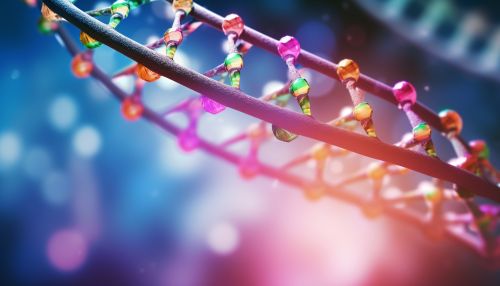The Science of Human Cognitive Aging and Dementia
Introduction
Human cognitive aging refers to the natural process of cognitive decline that occurs as individuals age, affecting aspects such as memory, attention, and processing speed. This process is distinct from dementia, a group of conditions characterized by significant cognitive impairment that interferes with daily life. Understanding the science behind these phenomena is crucial for developing interventions and treatments to mitigate their impact.


Cognitive Aging
Cognitive aging is a normal part of the aging process. It involves changes in cognitive function that occur as people get older. These changes are not uniform across individuals or cognitive domains, and they are not pathological in nature.
Memory
One of the most noticeable aspects of cognitive aging is changes in memory. This includes both episodic memory, which involves remembering specific events, and semantic memory, which involves knowledge of facts and concepts. While episodic memory tends to decline with age, semantic memory often remains stable or even improves.


Attention and Processing Speed
Attention and processing speed also tend to decline with age. This can make it more difficult for older adults to process information quickly and efficiently, which can impact other cognitive functions.
Executive Functions
Executive functions, which include skills such as planning, problem-solving, and multitasking, can also be affected by cognitive aging. However, like other aspects of cognitive aging, there is considerable variability in how these skills change over time.
Dementia
Dementia is a term that describes a group of symptoms affecting memory, thinking, and social abilities severely enough to interfere with daily functioning. It is not a specific disease, but several different diseases may cause dementia.


Alzheimer's Disease
Alzheimer's disease is the most common cause of dementia in older adults. It is characterized by the buildup of beta-amyloid plaques and tau tangles in the brain, which lead to neuronal death and cognitive decline.
Vascular Dementia
Vascular dementia is the second most common type of dementia. It occurs as a result of damage to the blood vessels that supply the brain, often due to stroke or other vascular conditions.
Lewy Body Dementia
Lewy body dementia is characterized by the presence of Lewy bodies, abnormal aggregates of protein, in brain cells. It is often associated with Parkinson's disease and can cause a range of cognitive and physical symptoms.
The Science Behind Cognitive Aging and Dementia
The science behind cognitive aging and dementia is complex and multifaceted, involving a combination of genetic, biological, and environmental factors.


Genetics
Genetics plays a significant role in both cognitive aging and dementia. Certain genes have been associated with an increased risk of developing dementia, while others may influence the rate of cognitive aging.
Biology
Biological factors also play a crucial role. This includes changes in brain structure and function, such as the loss of neurons and synapses, and the buildup of harmful proteins.
Environment
Environmental factors, such as diet, exercise, and cognitive stimulation, can also influence cognitive aging and dementia. These factors can interact with genetic and biological factors in complex ways, making it difficult to isolate their individual effects.
Prevention and Treatment
While cognitive aging and dementia cannot be completely prevented, there are strategies that can help reduce the risk and slow the progression of these conditions.


Lifestyle Modifications
Lifestyle modifications, such as maintaining a healthy diet, regular physical activity, and engaging in cognitively stimulating activities, can help promote cognitive health and slow cognitive decline.
Medications
Certain medications can help manage the symptoms of dementia, although they cannot cure the condition. These include cholinesterase inhibitors and memantine, which can help improve cognitive function in some individuals.
Cognitive Training
Cognitive training programs, which involve exercises designed to improve specific cognitive functions, can also be beneficial. These programs can help improve memory, attention, and other cognitive skills.
Conclusion
Understanding the science of human cognitive aging and dementia is crucial for developing effective interventions and treatments. While these conditions are a normal part of aging, they can have a significant impact on individuals' quality of life. Therefore, continued research in this area is essential.


